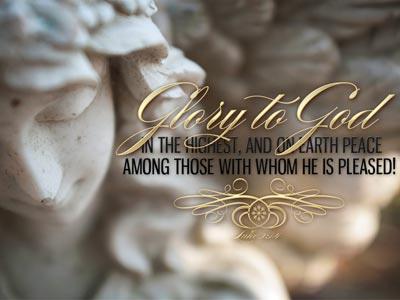-
Investigating Angels And Demons Series
Contributed by C Jordan on Nov 28, 2017 (message contributor)
Summary: This critical response is a look at some of the main lies and errors that are found in Dan Brown’s ’Angels and Demons’ novel.
INVESTIGATING BROWN’S ANGELS AND DEMONS
"But sanctify the Lord God in your hearts, and always be ready to give a defense to everyone who asks you a reason for the hope that is in you, with meekness and fear." (1 Peter 3:15).
Do you remember the story of Snow White? When the magic mirror tells Snow White’s wicked stepmother, the queen, that Snow White is the fairest in the land, the queen is furious, and sets out to kill her step-daughter. Using magic to turn herself into an old hag, the queen visits Snow White at the cottage of the seven dwarfs, and tricks her into biting into a poisoned apple, sending the beautiful princess into a deep sleep. It’s too bad that there wasn’t someone around who knew what the wicked queen was plotting that could have kept Snow White from eating the poisoned fruit! Although we know that the story of Snow White is only a fairy tale, there is a lesson in this story for us. There’s an insidious plot afoot today, designed to poison the minds of people, in the form of a cunning novel called Angels and Demons by Dan Brown. This is no harmless little fairy tale, but an all-out attack against the church of Jesus Christ! This critical response is designed to point out some of the deceptive messages hidden in this malicious novel, to help prevent you from falling prey to its treacherous falsehoods.
WHAT IS ANGELS AND DEMONS?
Angels & Demons is a bestselling mystery novel written by Dan Brown that was published in 2000. It tells the story of Harvard University symbologist Robert Langdon who tries to unravel the mysteries of a secret society called the Illuminati, and prevent them from destroying Vatican City using an antimatter bomb. This character is also the protagonist of Brown’s novel The Da Vinci Code, another toxic book of lies and false claims against the Christian church. (For more info about the deceptions in The Da Vinci Code, see my article Exposing The Da Vinci Deception, available to download at our website: www.beausejourchurch.ca). Here is a look at some of the main lies and errors that are found in Brown’s Angels and Demons novel:
THE LIES IN ANGELS AND DEMONS:
LIE #1 – CHRISTIANITY IS LIKE A CANCER:
“Looming before them was a rectangular, ultramodern structure of glass and steel. Langdon was amazed by the building’s striking transparent design. He had always had a fond love of architecture. “The Glass Cathedral,” the escort offered.
“A church?”
“Hell, no. A church is the one thing we don’t have. Physics is the religion around here. Use the Lord’s name in vain all you like,” he laughed, “just don’t slander any quarks or mesons.” (Brown, pg. 22).
Right at the very beginning of this tale, Brown reveals his true intentions. This is no adrenaline laced fiction ride – this is a blatant, all-out attack against God, the church, and Christianity. One of the characters tells Langdon, “We don’t want a church here, we don’t like church, in fact, let’s go break the Ten Commandments – eat, drink and be merry, we don’t want any ‘god’ telling us what to do!” This is a harbinger of the poison to follow.
A few pages later, another character’s dialogue is used to reveal Brown’s hatred for the church:
“Miracles?” The word “miracle” was certainly not part of the vocabulary around Harvard’s Fairchild Science Building. Miracles were left for the School of Divinity.
“You sound skeptical,” Kohler said.” I thought you were a religious symbologist. Do you not believe in miracles?”
“I’m undecided on miracles,” Langdon said…
“Perhaps miracle is the wrong word. I was simply trying to speak your language.”
“My language?” Langdon was suddenly uncomfortable. “Not to disappoint you, sir, but I study religious symbology – I’m an academic, not a priest.”
Kohler slowed suddenly and turned, his gaze softening a bit. “Of course. How simple of me. One does not need to have cancer to analyze its symptoms.”
Langdon had never heard it put quite that way.” (Brown, pg. 26-27).
If you didn’t catch the subtle slander here, what Brown’s character is saying is that Christianity is like a cancer, and cancer is defined as any evil condition or thing that spreads destructively. Brown studies religious symbology – symbolism in the church – but he is not a Christian or a religious man. And the other character, Kohler, says in essence, “You are not a part of the church, but you are studying the church, which is like a cancer – it’s evil and destructive.” You might think that I’m reading too much into this here, but as you read on in the novel, you will see that the author relentlessly slanders Christianity. One example of this is a statement Langdon makes on page 48: “the superstitious dogma spewed forth by the church was mankind’s greatest enemy… if religion continued to promote pious myth as absolute fact, scientific progress would halt, and mankind would be doomed to an ignorant future of senseless holy wars.”

 Sermon Central
Sermon Central



